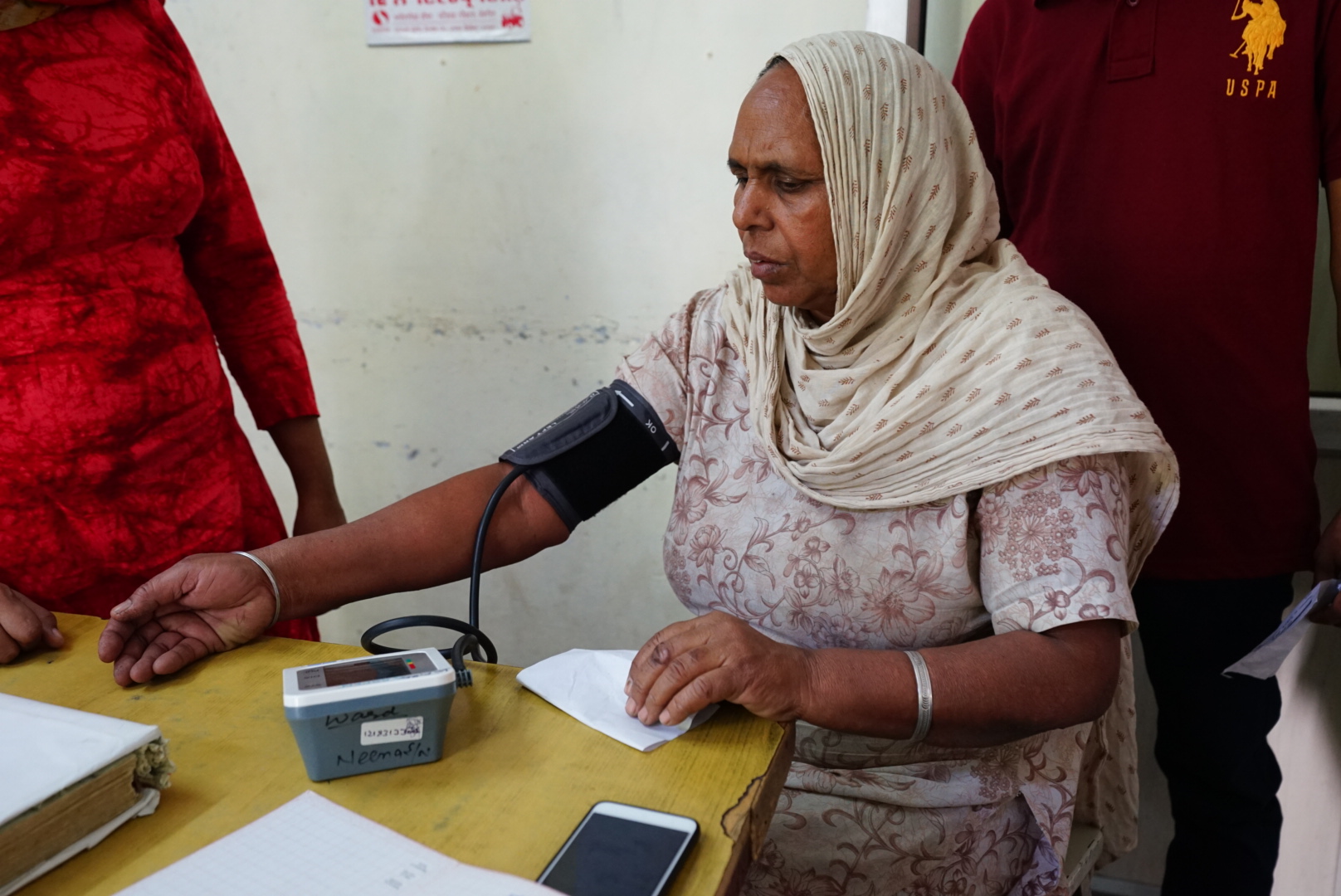In the state of Punjab in northwest India, one in three adults is afflicted with hypertension, otherwise known as high blood pressure. Diets high in salt and trans fat are a significant contributor to developing hypertension, and without treatment, the condition can lead to serious disability, and even death, from cardiovascular disease.
Across India, 200 million adults have hypertension, yet only one in four of these adults are aware of their condition, and just one in ten has their blood pressure under control.
To address the high burden of hypertension, the government of India has adopted the 25 by 25 goal, which aims to reduce prevalence of high blood pressure by 25 percent by 2025.
The India Hypertension Management Initiative (IHMI), a joint venture of Government of India, Indian Council of Medical Research, World Health Organization and Vital Strategies’ Resolve to Save Lives aims to accelerate the achievement of the government’s goal.
On January 1, 2018, IHMI was initiated in five districts in Punjab—Hoshiarpur, Gurdaspur, Pathankot, Bathinda and Mansa—covering a total of six million people. With the government of India and the IHMI taking the lead, new staff have been recruited and trained throughout the region to bolster this initiative. As the first to implement such a program, Punjab is now leading the world in their effort to improve blood pressure control and surveillance.
In its first year alone, the results have been promising. Since its launch, IHMI has enrolled 150,000 patients, ensuring access to necessary treatment and monitoring in the state. By year’s end, IHMI launched in four additional districts in Kerala, and three in Madhya Pradesh, extending the reach of the initiative to an additional 15.8 million people.
India has made unprecedented progress in their efforts to reduce the burden of hypertension. This progress would not have been possible without the untiring support of partner institutes, government health missionaries both at central and state governments.
